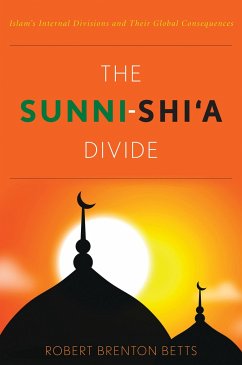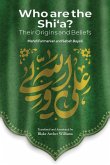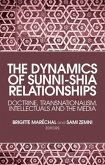Until the attacks of September 11, 2001, few Americans knew anything about Islam, let alone about the distinctions between Sunni and Shi¿a, the Sufi and Wahhabi, the origins of the Holy Qur¿an and Shari¿a law, and the respect that all Muslims, even secular ones, harbor for the prophet Muhammad, his family, and Islamic traditions. In The Sunni-Shi¿a Divide Robert Betts traces the tortuous history of Islam¿s sectarian divisions, emphasizing the most important one, the Shi¿a departure from Sunni¿orthodoxy.¿ Although the majority of Muslims remain faithful to the Sunni sect of Islam, approximately 15 percent subscribe to the Shi¿a creed. As America¿s involvement in the Middle East drags on, Betts reiterates that policymakers, scholars, and laymen alike must understand the many faces of Islam, the internal forces in the United States that have brought us into these conflicts, and the role of Israel in the region¿s escalating tensions. How the increasing hostility between the two main Islamic factions plays out on the world stage¿as Sunni Turkey, Shi¿a Iran, and their allies vie for dominance¿is of major consequence for everyone, especially financially strapped Europe and the United States.About the AuthorROBERT BRENTON BETTS is a retired professor at the University of Balamand, Lebanon, and at the American University of Beirut. He holds a PhD in international relations and Middle East studies from the Johns Hopkins School of Advanced International Studies and is the author of three previously published books: Christians in the Arab East: A Political Study (John Knox Press, 1978), The Druze (Yale University Press, 1988), and The Southern Portals of Byzantium (Musical Times, 2009). He lives in Summerville, South Carolina.
Hinweis: Dieser Artikel kann nur an eine deutsche Lieferadresse ausgeliefert werden.
Hinweis: Dieser Artikel kann nur an eine deutsche Lieferadresse ausgeliefert werden.








